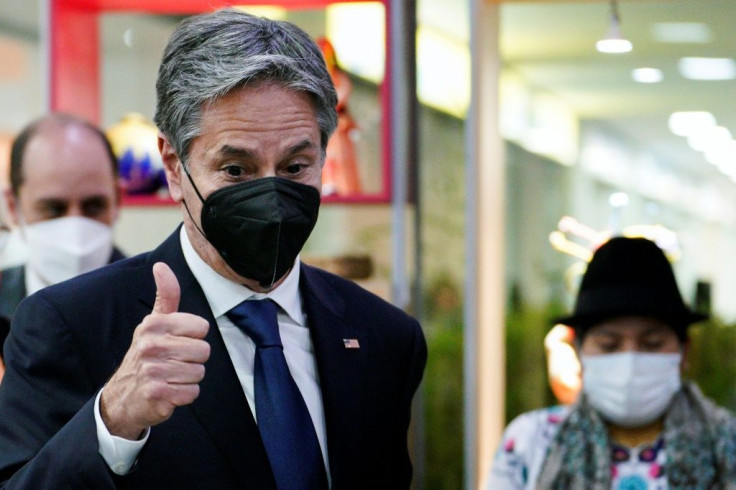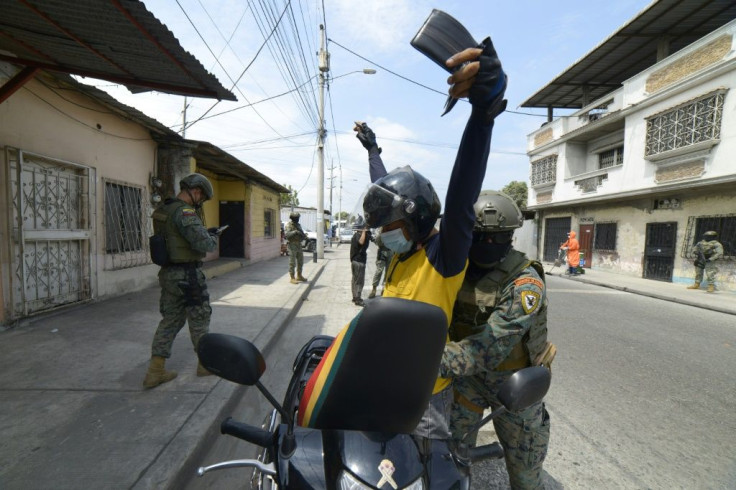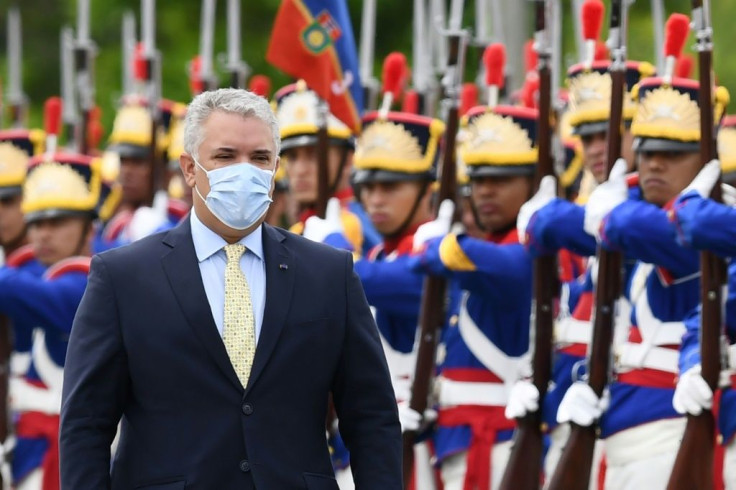Blinken Promises US Shift From Military Focus In Latin America
The United States has focused too much on security over other assistance in Latin America, Secretary of State Antony Blinken said Wednesday, as he vowed a concerted push to encourage democracy.
Amid a rise both of authoritarians and populists in Latin America, Blinken is visiting Ecuador and Colombia as President Joe Biden seeks to champion stable democracies.
Both nations receive US security training and are led by conservatives who have taken controversial measures, with Colombian forces this year killing dozens of anti-government protesters and Ecuador on Tuesday announcing a state of emergency just as Blinken flew in.
"Our record on partnering with the region's democracies to improve civilian society has been mixed," Blinken said in a speech in the Ecuadorian capital Quito.

"That's because often, we tried to fix the problem by relying too much on training and equipping security forces, and too little on the other tools in our kit," he said at the Universidad San Francisco de Quito, with the green Andean foothills behind him.
"We focused too much on addressing the symptoms of organized crime, like homicides and drug trafficking, and too little on the root causes. We're working to correct that imbalance."
He acknowledged the long shadow of US support for dictators, saying, "There were times when we supported governments in the Americas that did not reflect the choice or the will of their people and did not respect their human rights."
Among US initiatives that go beyond security, Blinken pointed to the Biden administration's greater push on fighting corruption, including denying visas to officials involved in graft.

Blinken said the United States, alongside its frequent calls for elections, would also be more attentive to economic concerns such as improving labor standards, health care and education.
"This should be obvious, but the reality is we've often put more energy into strengthening civil and political rights, as vital and important as they are -- free and fair elections, freedom of speech and assembly -- and less into strengthening people's economic and social rights."
The Biden administration, largely following the lead of former president Donald Trump, has ramped up pressure on leftist autocratic leaders in Cuba, Nicaragua and Venezuela, where President Nicolas Maduro has suspended dialogue with the US-backed opposition.
While US statements have been more cautious, questions about democracy have also been rising in the region's most populous nation, Brazil, where far-right President Jair Bolsonaro has taken a page from Trump in sowing doubts about the legitimacy of upcoming elections.

"We find ourselves in a moment of democratic reckoning," Blinken said.
His call for an economic focus comes as China lavishes loan money for infrastructure in Latin America, worrying the United States which sees a rising and authoritarian Beijing as the biggest long-term challenge.
In Ecuador, which has received billions of dollars in Chinese loans to fund electricity, oil and other projects, Blinken said Tuesday he was not asking countries to "choose between the United States and China" but called for greater scrutiny about Beijing's investments in sensitive areas.
While far smaller in financial scope than China's loans, the United States recently sought to make a tangible impact by announcing $150 million in loans for small businesses run by women in Ecuador.
Blinken later Wednesday will meet in Colombia with President Ivan Duque, who was closely allied with Trump. Biden has broadly voiced support for Duque but has not met him.
In a letter to Blinken, Human Rights Watch said that Duque has presided over police brutality "unprecedented in recent Colombian history" in the violent repression of major demonstrations over proposed tax reforms.
"A strong public and private response by the Biden administration could help prevent further human rights violations," wrote the group's Americas chief, Jose Miguel Vicanco.
Duque replied that Colombia was navigating a fragile peace since FARC rebels agreed to disarm in 2016 and that he sought to "work effectively" with the United States.
In tune with US hopes for a broader relationship, Duque will speak to Blinken about two priorities for Biden -- climate change and migration.
Blinken will meet in Bogota with regional ministers on common plans amid a sharp rise in desperate Haitians making the long trek toward the United States.
© Copyright AFP {{Year}}. All rights reserved.





















